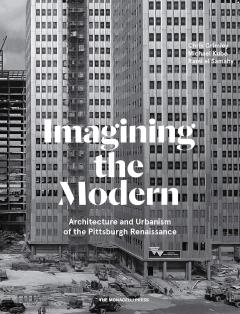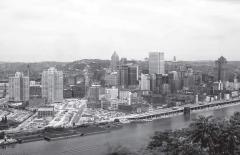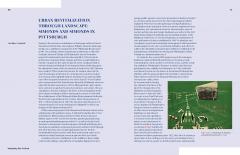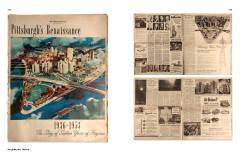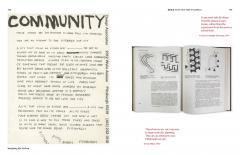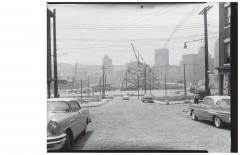Imagining the Modern explores Pittsburgh's ambitious modern architecture and urban renewal program that made it a gem of American postwar cities, and set the stage for its stature today.
In the 1950s and '60s an ambitious program of urban revitalization transformed Pittsburgh and became a model for other American cities. Billed as the Pittsburgh Renaissance, this era of superlatives--the city claimed the tallest aluminum clad building, the world's largest retractable dome, the tallest steel structure--developed through visionary mayors and business leaders, powerful urban planning authorities, and architects and urban designers of international renown, including Frank Lloyd Wright, I.M. Pei, Mies van der Rohe, SOM, and Harrison & Abramovitz. These leaders, civic groups, and architects worked together to reconceive the city through local and federal initiatives that aimed to address the problems that confronted Pittsburgh's postwar development.
Initiated as an award-winning exhibition at the Carnegie Museum of Art in 2014, Imagining the Modern untangles this complicated relationship with modern architecture and planning through a history of Pittsburgh's major sites, protagonists, and voices of intervention. Through original documentation, photographs and drawings, as well as essays, analytical drawings, and interviews with participants, this book provides a nuanced view of this crucial moment in Pittsburgh's evolution. Addressing both positive and negative impacts of the era, Imagining the Modern examines what took place during the city's urban renewal era, what was gained and lost, and what these histories might suggest for the city's future.

